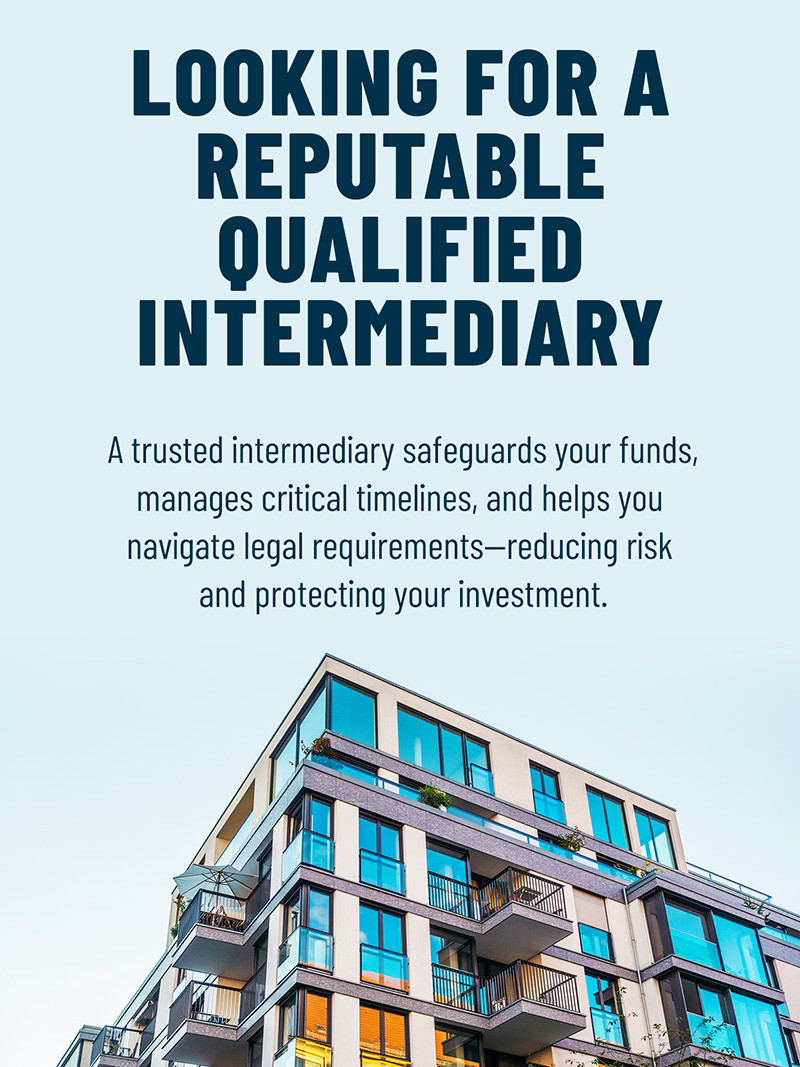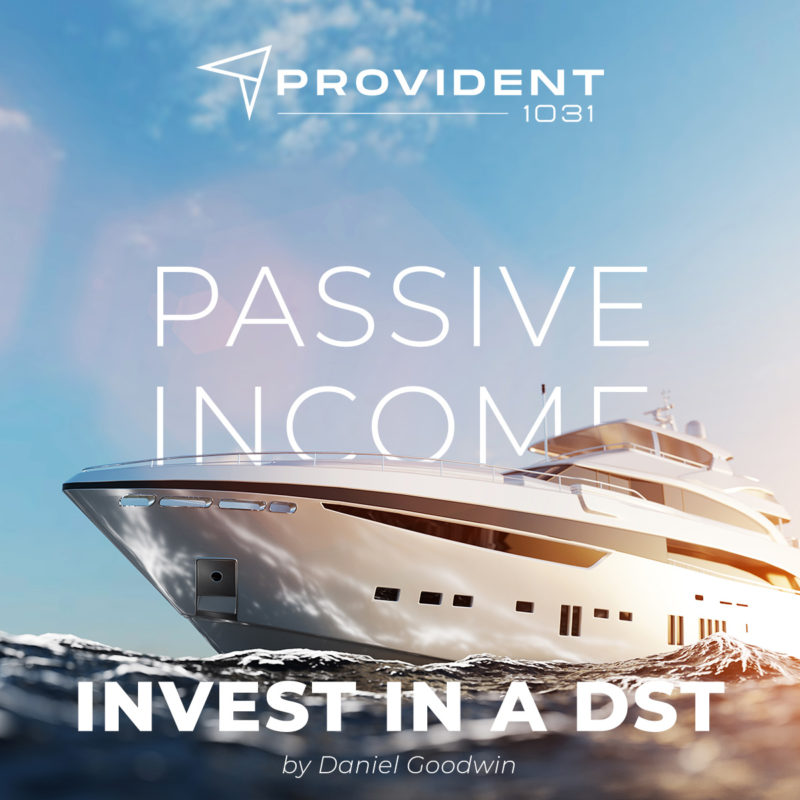Delaware Statutory Trust (DST) – Pros and Cons
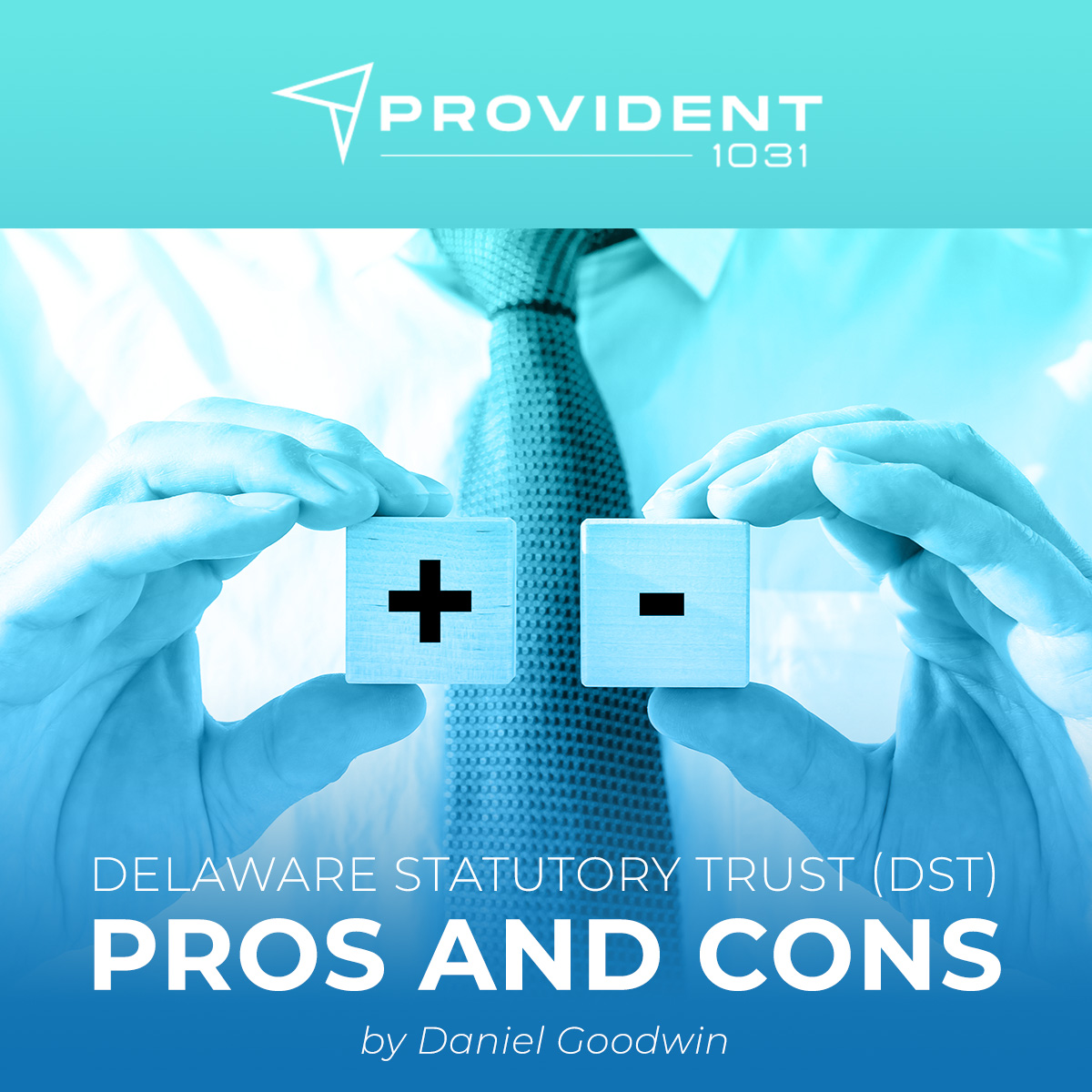
A Delaware Statutory Trust is touted by many who sell them as the best thing going for real estate investors, but are they?
As is true with most investments, there is no “one size” all-purpose advice suitable for all investors. While one real estate investor may find the DST to be an ideal and perfect solution for their circumstances, another investor may well find it in their best interest to select from other opportunities.
Here is a quick rundown of the main pros and cons associated with a Delaware Statutory Trust (DST).
Pros of a Delaware Statutory Trust
1. A chance to own premium real estate.

Let’s face it, most retail real estate investors cannot invest in 100 million dollar medical buildings, distribution centers, class A multi-family apartments, shopping centers, storage portfolios, and the like.
Because DST’s allow for a fractionalized interest in a trust structure, a smaller investor can now own properties that they never could before simply because of the sheer size of the investment. In addition, the DST issues a pro-rata operating statement at the end of the year, and investors enjoy the same tax advantages with depreciation and amortization that an investor would enjoy who owned the investment property wholly.
2. Preserve your step up in basis.

One does not need a DST to preserve the step-up in basis. An investor can 1031 exchange into a replacement property and preserve the time-tested step up in basis. Still, for an investor no longer interested in managing property, the DST can remove the burden of management while maintaining this critical tax advantage.
3. Get away from the 3T’s — Tenants, Toilets, and Trash.
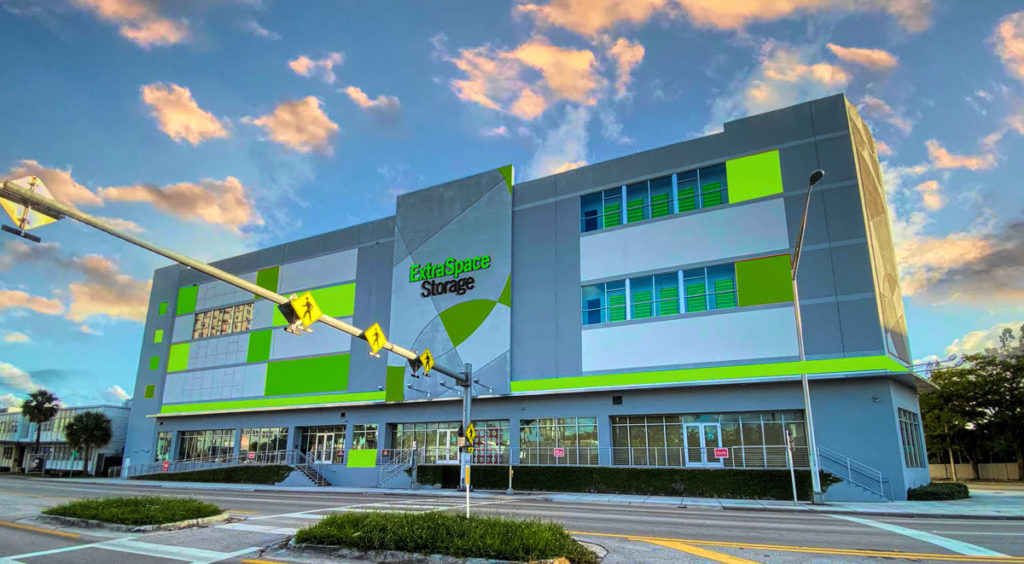
Sometimes investors are at a place in life where they no longer want to deal with all of the issues of managing property. Loan renewals, repairs, vacancy, tax filings, accounting, and lawsuits are among other headaches which can be associated with owning investment real estate. By owning a small fraction of a much larger property, investors no longer have to deal with issues like this as the DST structure takes care of these.
4. DSTs meet the 1031 Exchange “replacement property” requirements.

Many times finding a replacement property can be a considerable challenge. DST properties meet the IRS test and are considered acceptable replacement properties. Investing in these properties can be pretty simple once an investor has read the disclosures, the Private Placement Memorandum, and has spoken with a qualified advisor.
5. Income DSTs can provide immediate and reliable tax-favored monthly income distributions.
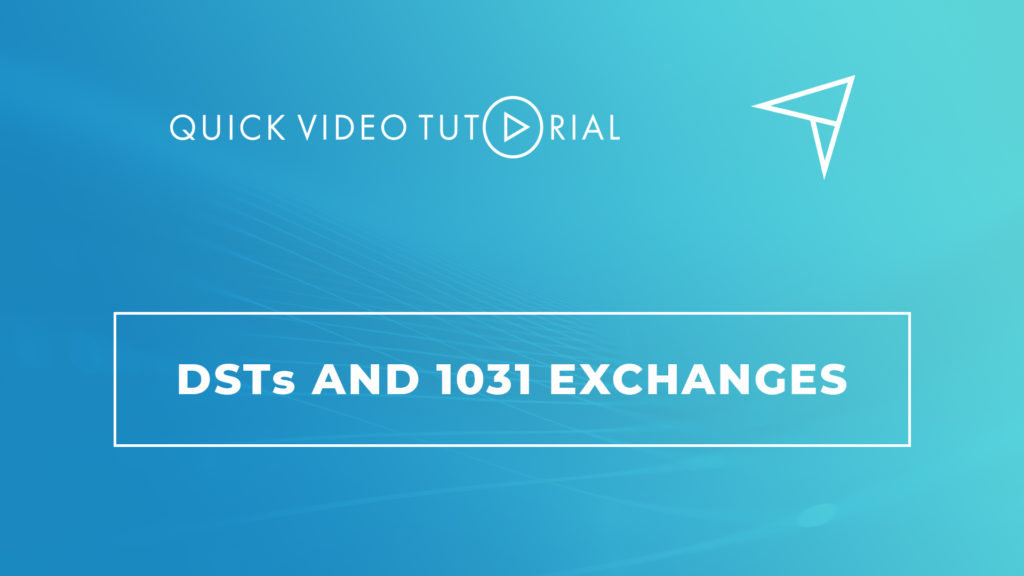
Investors should read all disclosures and fully understand the investment and associated risks.
At Provident 1031 we provide you with several resources to help you navigate DSTs and 1031 Exchanges.
Cons of a Delaware Statutory Trust (DST)
1. Only for Accredited Investors

Younger investors who have not yet built enough wealth and or equity are prohibited from entering into a DST arraignment via Securities Regulation D under the Accredited Investor Rules. The rule states that to invest in private placement investments, one must have a net worth of over $1,000,000, excluding one’s primary residence, and income requirements of at least $200,000.
For a more significant explanation of those requirements, I go in-depth in the Master The 1031 Exchange Masterclass, where we cover:
- The concept of the 1031 Exchange and basic strategies for success.
- The basic rules and regulations of the 1031 Exchange
- A deep dive into the Rules of a 1031 Exchange and the Delaware Statutory Trust (DST).
- The key strategies and tactics for using the 1031 Exchange and DST.
- I illustrate an actual investor who used the key strategies and tactics I taught in the first four lessons.
I highly recommend you take my masterclass. It is power-packed, and the lessons are only 10-13 minutes long.
2. Not the best idea for younger wealth builders.
Younger investors seeking a higher risk/return profile might not yet be ready for a DST solution. But on the other hand, young wealth builders might be in a more significant position to take on substantial risk and, in turn, reap the benefits of higher risk returns than what a more seasoned investor might be willing to do. Moreover, should those risks cause the younger investor to lose income or equity, the younger investor usually has more time to overcome such losses.
Generally, most DST investors tend to be more seasoned investors with a few battle scars and more life experience than younger investors.
3. Less suitable for “Do It Yourself” types.
Some investors have a personal preference for finding tenants, negotiating leases, and managing the books and records. These tasks can range from property taxes, rent rolls, bank loans, lease agreements, tenant issues, property repairs, and so on. A DST is a more passive investment where commercial-grade real estate firms do all of those things. If you are the sort of person who would really miss those things and if you find significance in those activities, you might find the DST solution less appealing.
4. Not liquid
Investors are people and, therefore, very different from one another. For example, if a real estate investor has a high need for liquidity, the investor might want to avoid real estate altogether. To that end, a 1031 Exchange might not be the best idea for an investor who needs more access to their cash.
A straight sale of your real estate, where you recognize capital gains, might be what is required in this instance. This would allow the investor to invest in more traditional stock and bond portfolios that you can turn into cash in short order. Investors’ high need for liquidity might be due to the need for raising cash for a more significant leveraged deal, the anticipation of a divorce, health concerns, speculation about the economy, or for many other possible reasons.
Again, the DST is an ideal solution for many investors, not ALL investors.
5. Developers and construction company owners might do better on their own.
Someone who owns a construction or Development company might want to use a 1031 exchange to use their construction company to build their new replacement property, therefore benefiting two of their interests. First, properties that are “to be built” generally will have a higher risk-return profile as well and may be better suited for a younger investor. Moreover, the individual may have a keen skillset and ability around a particular property such as car washes, storage facilities, dentist and vet clinics, retail, etc.
An investor wishing to determine the viability of a DST investment would be well served to do their own research.
Still, at a certain point, you will need to contact a Registered Investment Advisor who is properly licensed and trained to offer DSTs to private investors. Investors must purchase DSTs through Registered Representatives, Registered Investment Advisors, and or Broker-Dealers.
Call us at 281-466-4843 or reach us here to speak with an advisor.

